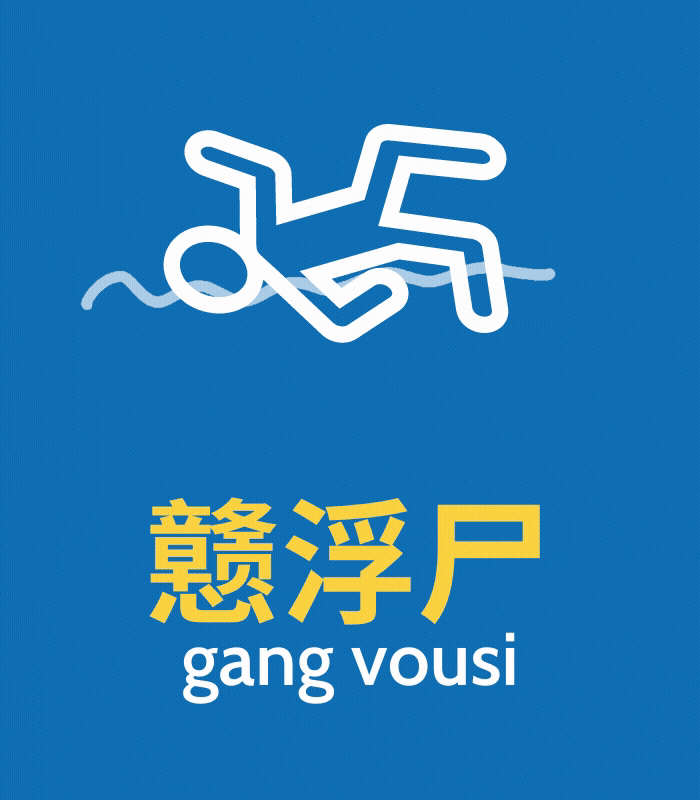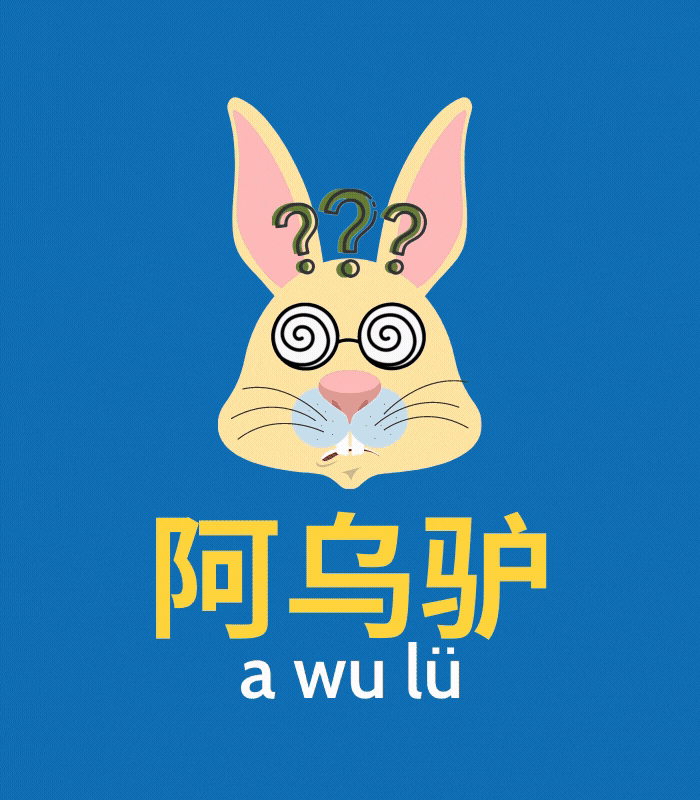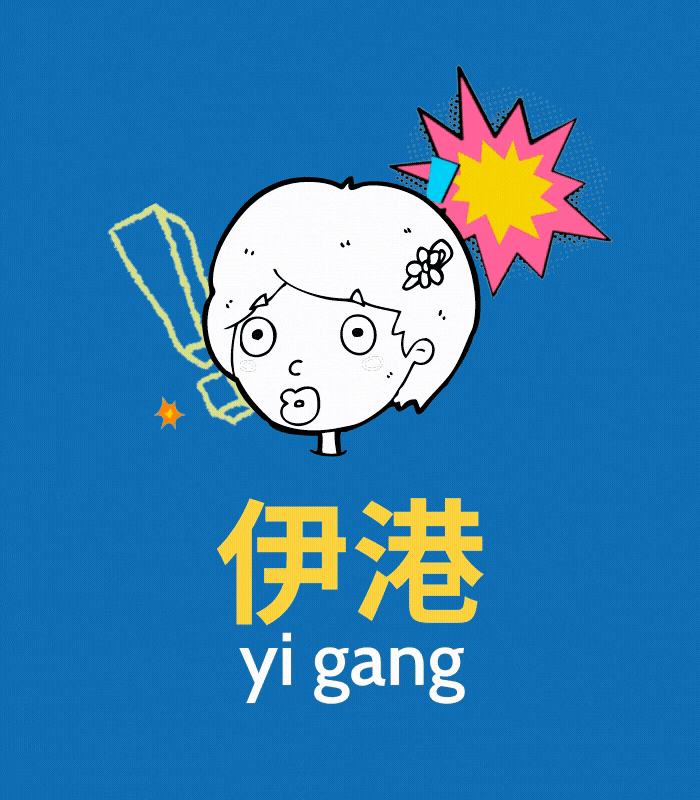10 Shanghainese Swear Words 🗣 (PLUS 2 Bonus Entries) to Add to Your Vocabulary
Top 10 Shanghainese Curse Words You Probably Shouldn’t Repeat!
So, curse words. They’re some of the first words you learn when studying language because, let’s be honest, they’re fun! So today we introduce to you the best Shanghainese swear words you should know.
(I, for one, know exactly how to do two things in Cantonese: count to four, and recite a not-so-repeatable swear word).
It’s all about proper immersion after all!
A quick note: Shanghainese (上海话) as a dialect (or language because it is that different) has the four tones Mandarin (普通话) has, but there isn’t a particularly standardized way of writing Shanghainese.
There are tones, but they’re a lot looser than tones in Mandarin.
The characters we have here are the phonetic pronunciations of how to say these Shanghainese swear words.
As its pronunciation is not the same as its written form, included in some is the “correct” way to write them.
Shanghainese Swear Word #1 – 册那 (ca na)
Shanghainese Swear Word #2 – 脑子坏脱了 (nong nozi wate la)
Shanghainese Swear Word #3 – 戆浮尸 (gang vousi)
Shanghainese Swear Word #4 – 弄想哪能 (nong xiang naneng)
Shanghainese Swear Word #5 – 阿乌驴 (a wu lü)
Shanghainese Swear Word #6 – 瘪三 (bie san)
Shanghainese Swear Word #7 – 戆逼样子 (gangbi yangzi)
Shanghainese Swear Word #8 – 戆驴 (gang lü)
Shanghainese Swear Word #9 – 弄只戆逼 (nong ze gangbi)
Shanghainese Swear Word #10 – 缺西 (que xi)
BONUS Swear Word #1 – 戆度 (gang du)
BONUS Swear Word #2 – 伊戆 (yi gang)
BONUS | TEST YOURSELF – Quiz
Shanghainese Swear Words – FAQs
PSST – want to master Mandarin swear words first? No problem, check out this quick video and learn the Chinese swear words in a matter of minutes!
OK now let’s discover the Shanghainese Swear Words…
1. 册那 (ca na)
A fairly common Shanghainese Swear Word. This means “sh*t”, “crap”, or “oh my god” — something along those lines.
It’s used similar in Mandarin to “我操” (wǒ cāo) or “我靠” (wǒ kào), which translates into “f*ck me”.
Although, its English translation is a lot more aggressive than its Chinese counterpart.
“册那” (ca na) shows surprise and exasperation, and it’s moderately vulgar.
2. 脑子坏脱了 (nong nozi wate la)
This phrase essentially insults someone’s intelligence in a soft, humorous way.
It’s similar to “你脑子进水了” (nǐ nǎozi jìn shuǐle) in Mandarin (that translates into “there’s water in your head”), though the Mandarin equivalent is harsher.
3. 戆浮尸 (gang vousi)

Translated directly, “戆浮尸” means “stupid floating corpse”.
“戆浮尸” has the same meaning as Shanghainese phrases “腾戆” and “浮尸”, which mean the same thing.
Though this phrase is vulgar enough, you wouldn’t hear it too often as it’s mostly used by older people.
(“戆浮尸” might be an exemplar of Shanghainese swear words when you take into consideration that the Huangpu River, amongst others, flows through Shanghai. It also flows into the Yangtze River, the world’s third longest river. Make of that what you will.)
4. 弄想哪能? (nong xiang naneng)
This means “what do you want?”.
It’s similar to “你想怎么样?” (nǐ xiǎng zěnme yàng) in Mandarin. “哪能”, the last two characters, mean “how”.
It’s an aggressive phrase, so maybe don’t say it unless you mean it.
The first character would be pronounced “弄” (nong) but written as “侬”.
5. 阿乌驴 (a wu lü)

Also not a friendly phrase, though are any of these?
Shanghainese’s “阿乌驴” means “白痴” (báichī) or “笨蛋” (bèndàn) in Mandarin, which are common ways to call someone a moron or idiot.
It’s a pretty bad thing to call someone in Shanghainese.
“阿乌驴” can also be translated into “蠢驴” (chǔn lǘ) in Mandarin, which is loanword from English-speaking movies.
“蠢” (chǔn) means dumb, and “驴” (lǘ) means donkey.
I’m sure you can guess its translation pf that one!
6. 瘪三 (bie san)
You’d say “瘪三” in regard to someone if you thought they weren’t a good person, or if you despised them.
It’s often condescendingly said, as it insinuates that the 瘪三 is of lower class.
“瘪三” is rooted in the English phrase “beg you sir”, and its phonetic pronunciation reflects this.

Learning Shanghainese : A Beginner’s Story 📖
Follow Carl’s Learn Shanghainese story – ” I thought learning Shanghainese is going to be insanely hard, but why not, maybe it’ll help me with my Chinese.”
7. 戆逼样子 (gangbi yangzi)
“戆逼样子” means “傻逼的样子” (shǎbī de yàngzi) in Mandarin, aka someone “looks like a stupid c*nt”.
This C-word is probably the harshest cuss word in the English language, and in this context, its harshness is reflected in Chinese as well. Sometimes it’s not always the case.
shǎbī is super common in spoke Mandarin and doesn’t hold the same force as the C-Word in English!
It’s a vulgar and aggressive way to describe someone.
Not a very nice phrase for sure!
8. 戆驴 (gang lü)
Definitely quite a cutting Shanghainese swear word — this one’s pretty bad, actually.
It’s the Shanghainese equivalent of “傻逼” (shǎbī) in Mandarin, which is an especially rude way of calling someone an absolute idiot.
It’s more along the lines of “stupid c*nt”.
When saying this phrase in Shanghainese, the second character would be pronounced “驴” (lü), but it would be written as “卵”.
9. 弄只戆逼 (nong ze gangbi)
This phrase follows a common thread; “弄只戆逼” means “you are a stupid c*nt”.
Again, C-Word related – seems the Shanghainese use this word a lot!
The phrase sounds like “弄再讲边”, which means “say it again”. Be super careful of your pronunciation and tones!
10. 缺西 (que xi)
“缺西” is bad; it basically means “脑子不清楚”, “脑子有问题”, or “脑子短路了” in Mandarin, which are all creative ways of saying something’s wrong with your head.
- 脑子不清楚 (nǎozi bù qīngchǔ): your head isn’t clear
- 脑子有问题 (nǎozi yǒu wèntí): your brain has a problem
- 脑子短路了 (nǎozi duǎnlùle): your brain short-circuited
“缺西” is this phrase’s phonetic pronunciation: que xi.
However, if you were to write this, it would be “屈死”.

Handling the Heat: What Causes Asian Flush and How to Prevent It?
Our Complete Guide to Asian Flush, aka the Asian Glow Asian Flush – Learn about AFR Thanks to our student Hannah Li for this wonderful insight into the infamous Asian Flush “It was a Friday or Saturday evening; I was…
BONUS #1: 戆度 (gang du)
This pretty much means “dumb” or “stupid”, and it’s similar to “笨蛋” (bèndàn) in Mandarin.
“戆度” can be a swear word; that said, it’s soft for a cuss word, and can be used in a friendly manner.
Someone might call their sibling (maybe not in front of their parents, though) or significant other this to poke fun.
This phrase would be pronounced “戆度” but would be written “戆大”.
Note: “戆度” is similar to “戆驴”, which is #8 on this list. While “戆度” can be conveyed in a friendly, joking manner, “戆驴” (#8) cannot be — call someone a “戆驴” and it’s most definitely insulting.
BONUS #2: 伊港 (yi gang)

“伊戆” pretty much means “wow”; it shows surprise.
It’s similar to “竟然” (jìngrán) in Mandarin, which means “unexpectedly”, or “to my surprise”.
“伊戆” is not really a curse per-say.
“伊戆” is slang, and it’s really soft compared to some of the other entries anyway.
It’s less of a swear and more of a way to express discontent, annoyance, or how weirded out you are by something or someone.
There we have it. 10 super cutting swear words and two bonus entries that don’t hold so much hate!
Shanghainese Swear Words — Other Notes
You’ve probably noticed that “戆” appears a lot.
The character itself means dumb (笨, bèn, Mandarin) and is not inherently bad.
Attached to any of these phrases, however, it becomes a swear of varying offence.
I hope you enjoyed our journey through different Shanghainese Swear Words!
If Shanghainese interests you take a look at Richard’s experience learning Shanghainese below, or why not take it on yourself and start you Shanghainese journey online, or in person at LTL Shanghai.
Shanghainese Swear Words — Quiz
It appears that this quiz is not set up correctlyA special thanks to Alex Krasnov of LTL Taiwan and Jason Wang of LTL Shanghai for helping contribute to this blog
Shanghainese Swear Words — FAQs
How do I say “sh*t” in Shanghainese?
“册那” (ca na). This means “sh*t”, “crap”, or “oh my god”.
What is an example of a mean Shanghainese swear word?
缺西 (que xi) essentially means “something’s wrong with your head” and is a strong swear word in Shanghainese.
What’s a friendly Shanghainese swear word?
“戆度” (gang du) means “dumb”. It can be a swear word, but it also can be used in a friendly manner to poke fun at someone.
What does “戆” (gang) mean?
“戆” means dumb (笨, bèn, Mandarin) and is not inherently bad.
Attached to any of these phrases, however, it becomes a swear of varying offence.
How different is Shanghainese from Mandarin?
In short, very.
The Shanghainese dialect (上海话) is so different from Mandarin (普通话) that for a Mandarin speaker, Shanghainese would sound completely foreign.
Mandarin has the four tones, and while Shanghainese does as well, it’s a lot less standardized.
Do I need to know Shanghainese to live in Shanghai?
You don’t!
While there is an estimated number of almost 14 million Shanghainese speakers, Mandarin is China’s lingua franca and pretty much everyone (especially younger generations) speak it. Some older people don’t, but you definitely don’t need to know Shanghainese to live in Shanghai.
You don’t need to know Mandarin to live in Shanghai either, honestly, though a basic grasp of the language would definitely help!
Want more from LTL?
If you wish to hear more from LTL Mandarin School, why not join our mailing list?
Why not starting learning Chinese online?
We give plenty of handy information on learning Chinese, useful apps to learn the language and everything going on at our LTL schools!
Sign up below and become part of our ever growing community!
We also offer online Chinese and Shanghainese classes tailored exactly to you, check them out!

 Hi, my name is Mojca. I am from Slovenia in Europe and I and I work as a student advisor at our Shanghai school.
Hi, my name is Mojca. I am from Slovenia in Europe and I and I work as a student advisor at our Shanghai school.


3 comments
What about greeting people? Is “hi” and “bye” different in Mandarin and Shanghainese?
Hi Maria,
“Hi” and “bye” in Shanghainese is different from Mandarin! “Hi” is pronounced 侬好 (nong ho) and “bye” is pronounced 再喂 (zei wei).
LTL
[…] pude encontrar esto en otra fuente respecto al segundo […]